Technology increasingly shapes the way that customer service is delivered, and app-based interactions are now the norm in sectors as diverse as retail, leisure and healthcare.
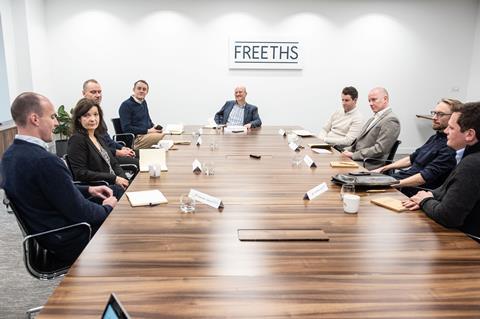
But what about the commercial property market? Is there still a role for the human factor when it comes to finding and leasing new office space; or does the speed of the tech-mediated experience win out, even when what is at stake is a potentially major multi-year commitment for occupier and landlord alike?
Property Week and Freeths convened a wide-ranging panel of commercial sector experts including agents, occupiers, investors and developers in order to address these timely questions.
Panel of experts
- Tim Atherton, partner, London tenant representation, Knight Frank
- Nick Brennan, founder, Rebase
- Henry Burn, vice-president, commercial, Hubble HQ
- James Gorman, general counsel (UK & CA) & director of special projects, HelloFresh
- Andrew Mercer, office sector lead, Legal & General Investment Management (LGIM)
- Charlie Russell-Jones, leasing director, Stanhope
- Matt Stephens, London partner, Freeths
- Andrew Saunders, contributing editor, Property Week (chair)
- Mel Flaherty, news editor, Property Week


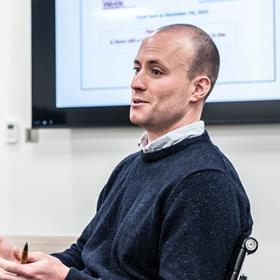

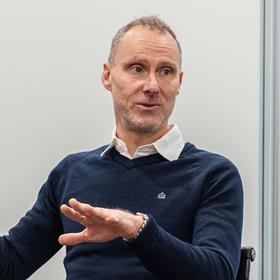
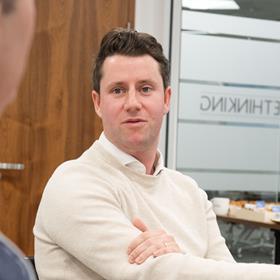
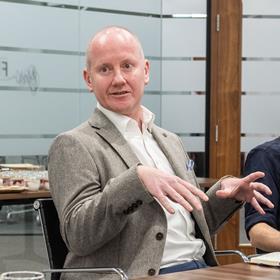

In terms of key drivers of relocation strategies, are speed and convenience or service levels more important to occupiers?
James Gorman: Speed was very important to us when HelloFresh was first looking for a UK office 10 to 12 years ago. We wanted an office quickly and our requirements were limited, as we only had a small number of employees at the time. But now that we have significantly more people, I don’t think speed would be as important if we were looking to move. If we were to make a similar move now, with a larger workforce, it would be completely holistic and the employee experience would be at the centre of it.
The difficult thing to understand right now is exactly what employees want, and how much time they want or need to spend in the office. We know our employees enjoy being back in the office and we are seeing more return to the office on a regular basis post-Covid-19.
Tim Atherton: At the smaller managed end of the market, it is great to be able to move quickly. But speed is not the key driver for bigger projects, which can have a significant lead time. We are looking three or four years out on some bigger requirements now, so that really needs a lot of thought.
Henry Burn: A lot of the companies we deal with have 10 to 100 people and they have never taken a lease before. Someone in the team has been tasked with it but it is not their job, so they want to do it quickly. We are very rarely doing anything to do with leasehold advisory, though – that is a completely different process.
Nick Brennan: Obviously, cost is important, and to drive the best cost you need an efficient process. The client needs to be fully comfortable with the brief and their requirements, and then it is down to the service providers – agents, lawyers and so on – to adopt the technologies that make them more efficient.
What can technology do that humans can’t?
Burn: We have 4,000 buildings in London [listed on the Hubble platform] and they all have between one and 50 offices available in a range of square footages. We also handle around 1,000 bookings a day on the flexible side. How do you manage all that and make sure you pay the office operator the right amount of money every month, without having someone go through it line by line? We couldn’t do any of that without getting the technology right.
But you still need people to do the more complex stuff. On a recent contract, we didn’t use technology but had a lawyer to walk us through what was quite a complex process.
Matt Stephens: What tech is brilliant at is data gathering and data presentation. The more information there is to be gathered, the more technology speeds things up. We are also really seeing that on the legal due diligence side, there is great scope for artificial intelligence (AI) technology to really streamline and improve the process – with vital human oversight at the end.
Atherton: From an occupier point of view, it is about getting the data, processing it and identifying the trends that come out of it. Technology can help with that – defining the brief and how the space will be used. But the day-to-day search is still down to the agent.
What are the most important challenges in looking for new office space?
Charlie Russell-Jones: Hard work up front and having a brief are key. Often, we are hit with requirements from large companies needing 100,000 sq ft to 150,000 sq ft, but they don’t really know what they want or what is important to them. That means it is very hard to make a bespoke offering to the occupier and that they will probably get a worse result in the end.
Also, landlords will often provide incentives for a longer lease, so occupiers get some perks but they take a bit more space because they don’t really know how much space they will need in five or 10 years. It is inefficient; upfront work will streamline both costs and timing.
Burn: Occupiers often come to us with a very loose brief, hoping that we will get them into the perfect solution at the right price really quickly. Normally, the first thing for us is to push back against that and educate them about what information they need to collect internally before taking the next steps.
Obviously, cost is important, and to drive the best cost you need an efficient process
Nick Brennan, Rebase
People don’t use data very well. Very few bother to get data on how their company currently interacts with its office space, even though there are some great tools out there to help you see how space is being used and make much more cost-effective decisions.
Andrew Mercer: It is a confused market. There are so many products out there and that makes it very difficult for occupiers to decide what is right for them and whether they need a broker or an agent. As an industry, we have to be much more transparent about what the different products are, the unique selling points of different owners and how they can solve the challenges faced by occupiers.
How has the shift to hybrid working influenced approaches to relocation?
Mercer: The decision-makers have changed. There are more HR directors and fewer finance directors on viewings now, and that has changed the way we approach leasing. As an office owner, we spend a lot of time trying to understand who is on viewings and why they have picked our space. We do workshops for our leasing and acquisition agents to help them understand that when they speak to an occupier, they should be asking what kind of business problems they are trying to solve. That way, we can start to build a relationship and provide a solution.
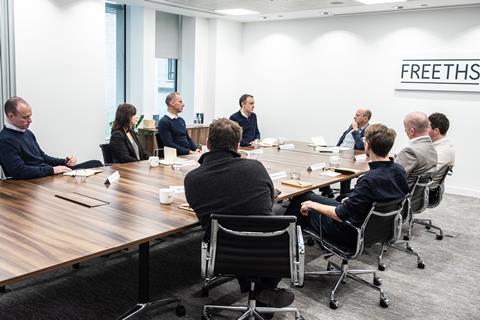
Russell-Jones: Our 8 Bishopsgate scheme in the City really focuses on community and the employee experience. We are seeing demand for it from companies coming out of completely different budget brackets, because they are prioritising the needs of wellbeing and HR. They are willing to step up because they know it will benefit their business in the long term.
Stephens: We have 100 people in our office and probably 100 different preferences [for remote versus office hours]. So, it is very hard for us as an organisation to know what we actually want, and that is an even bigger problem for larger companies with thousands rather than hundreds of employees.
What are the pros and cons of using one of the ‘big four’ agents versus a boutique agent?
Atherton: I don’t think it is about the size of the firm; it is about the experience, expertise and resources they can provide. Do they have the relationships and oversight of the development pipeline to bring you all the off-market opportunities? And large or small, it is also about understanding who else is in the market and who will be competing with you for space.
Russell-Jones: From a landlord’s perspective, we rely on the larger agencies for their in-house expertise – in ESG, for example – and access to data and research. Being able to pick the brains of someone like Tim [Atherton] about what matters to his clients is also very important, because we can incorporate that feedback into how we design and construct our buildings. That said, boutique firms, which are specialists in particular locations or submarkets, can also be super-valuable.
We are not going to get rid of humans. Technology is a great tool, and the advent of generative AI in particular has really changed the game; but it is something that we can use rather than something that will replace us
Matt Stephens, Freeths
Brennan: Flying the flag for smaller firms, they offer a more personalised service as opposed to potentially getting a bit lost in a larger corporate. In larger firms, there is landlord as well as tenant representation. Rebase is tenant-only, so in some cases it is useful for occupiers to know that the information they give us will not be shared, because we won’t be discussing it with the landlord community.
Gorman: The key thing from an occupier’s point of view is that they are getting access to the best properties. As long as they are getting that, then maybe they don’t mind so much whether the agent is large or small.
Is the commercial sector on a journey to a robo-advice future, or will there still be a role for humans to play?
Stephens: The short answer for me is no, we are not going to get rid of humans. Technology is a great tool, and the advent of generative AI in particular has really changed the game – rather like when the internet first came around, it has completely changed the way we can work. But it is something that we can use rather than something that will replace us. There is too much emotion and subjectivity involved [in choosing office space].
Gorman: I completely agree. It is a huge decision for an occupier and there is always an emotional element to it. The tech will assist agents, occupiers and developers to make better choices, but I don’t see a future where there is no place for the human element.
Brennan: Before we talk about robots, there are still a lot of inefficiencies that – if we are being honest with ourselves as service providers – could be taken up by technology to make the process quicker, easier and more cost effective for the client.
In the longer term, I can imagine a robot giving a tour around a building, for example. But I cannot imagine a robot capturing the sort of lateral thinking that your brain engages in when a client says something and you see an opportunity to get something moving.
Burn: One of the challenges is around building management software. Our platform is directly integrated with some buildings, but others have systems that require human operators to update them. Until there is more consensus around the software used to run buildings, agents and brokers will still have to pull information from lots of different sources. There is going to be a lot more useful technology for agents and brokers; but as long as people remain the decision-makers, there won’t be a fully robo future.
Mercer: Offices have evolved very quickly. They are more complex than they have ever been and that will continue. In the short term, we will need people to help [occupiers] take that journey.
But although it is difficult to say how far it will go, tech will start to take over a lot of those roles in future.
























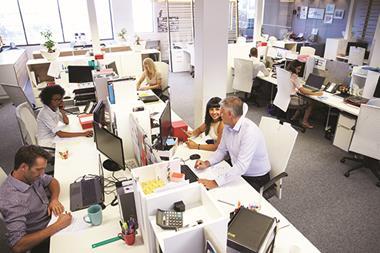





No comments yet